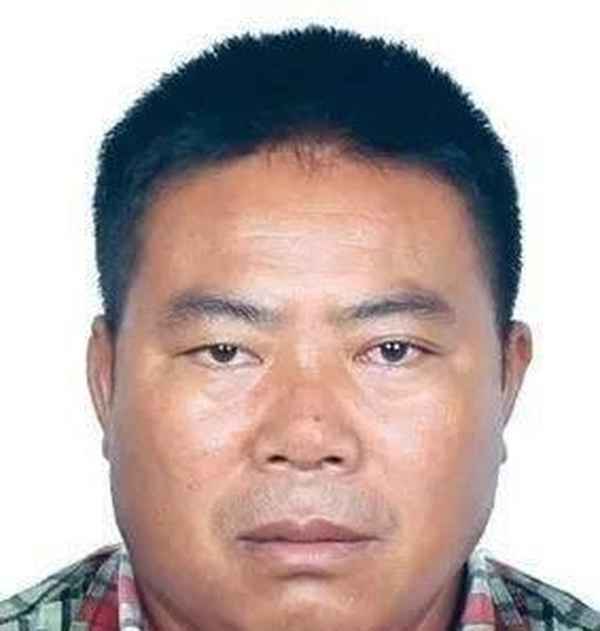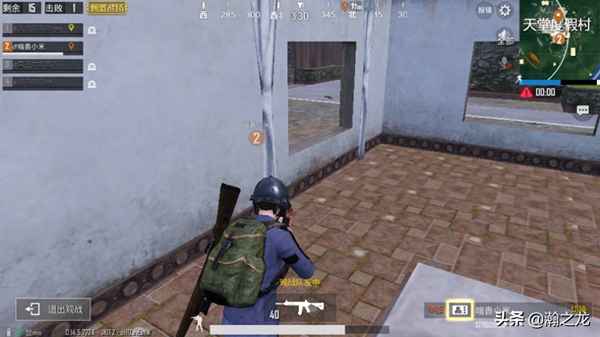第二節(jié)課用英語怎么說(第二節(jié)課用英語怎么說?)
??Lesson 37 The Olympic Games奧林匹克運(yùn)動(dòng)會(huì)
First listen and then answer the question.
聽錄音,然后回答以下問題 。
When was the last time this country hosted the Olympic Games?

The Olympic Games will be held in our country in four years' time As a great many people will be visiting the country, the government will be building new hotels,an immense stadium,and a new Olympic-standard swimming pool. They will also be building new roads and a special railway line. The Games will be held just outside the capital and the whole area will be called Olympic City’.Workers will have completed the new roads by the end of this year. By the end of next year, they will have finished work on the new stadium. The fantastic modern buildings have been designed by Kurt Gunter. Everybody will be watching anxiously as the new buildings go up. We are all very10 excited and are looking forward to the Olympic Games because they have never been held before in this country.
New words and expressions生詞和短語
Olympic(title)/slmpik/adi奧林匹克的
hold (l.1)/haold/ (held /held/. held)v召開
government(l.2)/gAvanmant/n.政府
immense(1.3)/imens/ad;.巨大的
stadium(1.3)/steidiam/n露天體育場(chǎng)
standard(1.4)/staended/n標(biāo)準(zhǔn)
capital(16)/kapitl/n.首都
fantastic(1.8)/facn'taestik/ ad;巨大的
design(1.9)/dizain/v設(shè)計(jì)
Noteson thetext 課文注釋
1.the Olympic Games,奧林匹克運(yùn)動(dòng)會(huì)
2.in four years’ time,4 年之后。
3.As a great many people...,as 是連詞,當(dāng)“因?yàn)椤敝v,引出原因狀語從句
4.Olympic-standard swimming pool,奧運(yùn)會(huì)標(biāo)準(zhǔn)游泳池。
5.Workers will have completed the new roads by the end of this year.今年年底前工人們將把新路鋪好。句中用了將來完成時(shí).這個(gè)時(shí)態(tài)用來表示到將來某一時(shí)刻已經(jīng)完成的動(dòng)作。
6.As the new buildings go up, as 是連詞,當(dāng)“當(dāng)”,“正值”講引出時(shí)間狀語從句7 look for ward to..., 盼望、期待······。to是介詞后可接名詞、代詞或動(dòng)名詞。
參考譯文
4 年以后,奧林匹克運(yùn)動(dòng)會(huì)將在我們國家舉行。由于將有大批的人到我們國家來所以政府準(zhǔn)備建造一些新的飯店、一個(gè)大型體育場(chǎng)和一個(gè)新的奧運(yùn)會(huì)標(biāo)準(zhǔn)游泳池。他們還將修筑一些新的道路和一條鐵路專線。奧運(yùn)會(huì)就在首都市郊舉辦、整個(gè)地區(qū)將被稱作“奧林匹克城”。工人們將在今年年底前把新路鋪好:到明年年底,他們將把新體育場(chǎng)律成。這些巨大的現(xiàn)代化建筑是由庫爾特·設(shè)計(jì)的。大家都將急切地注視著新建筑的建成,我們都非常興奮,并期待著奧運(yùn)會(huì),因?yàn)閵W運(yùn)會(huì)以前從未在這個(gè)國家舉辦過。
Lesson 38 Everything except the weather 唯獨(dú)沒有考慮到天氣
First listen and then answer the question
聽錄音,然后回答以下問題。
Why did Harrison sell his house so quickly?
My old friend, Harrison, had lived in the Mediterranean for many years before he returned to England. He had often dreamed of retiring in England and had planned to settle down in the country. He had no sooner returned than he bought a house and went to live there. Almost immediately he began to complain about the weather, for even though it was still summer. it rained continually and it was often bitterly cold. After so many years of sunshine, Harrison got a shock.He acted as if he had never lived in England before. In the end, it was more than he could bear. He had hardly had time to settle down when he sold the house and left the country10The dream he had had for so many years ended there. Harrison had thought of everything except the weather.
New words and expressions 生詞和短語
except(title)/ik'sept/ prep.除了
Mediterranean (l.1)/medita'reinian/ n.(the ~)地中海
complain(l.5)/kam'plein/v.抱怨
continually (1.6)/kentinjuali/ adv不斷地
bitterly(l.6)/biteli/ adv.刺骨地
sunshine(1.7)/sAnJain/n.陽光
Notes on the text 課文注釋
1.dreamed of,夢(mèng)想,幻想、向往
2.settle down in the country,在鄉(xiāng)下定居。
3.He had no sooner returned than he bought a house and went to live there.他剛回到英國就買了--幢房子住了進(jìn)去。no sooner..than..表示“就.”。這個(gè)句型用來引導(dǎo)時(shí)間狀語從句。主句里常用過去完成時(shí),than后面的從句用一般過去時(shí)。
4.even though,即使,這一結(jié)構(gòu)引出讓步狀語從句
5.Heacledasifhe had never lived in England before他的舉動(dòng)就好像他從未在英國生活過一樣。As if常用來引導(dǎo)表示方式的狀語從句。
6.more than he could bear.超過他所能忍受的程度。
7.He had hardly had time to settle down when he sold the house and left the country.他還沒有來得及安頓下就賣掉了房子,離開了這個(gè)國家。
參考譯文
我的老朋友哈里森在回到英國以前曾多年居住在地中海地區(qū)。過去他常幻想退休后到英國,并計(jì)劃在鄉(xiāng)間安頓下來。他剛一回到英國使買下了一幢房子住了進(jìn)去。但緊接著他就開始抱怨那里的天氣了。因?yàn)榧词鼓菚r(shí)仍為夏季。但雨總是下個(gè)不停、而且常常冷得歷害。在陽光下生活了那么多年的哈里森對(duì)此感到驚奇。他的舉動(dòng)就好像他從未在英國生活過一樣。最后,他再也忍受不住,還沒等安頓下來就賣掉了房子,離開了這個(gè)國家。
Lesson 39 Am I all right?我是否痊愈?
First listen and then answer the question.
聽錄音.然后回答以下問題。
Why did Mr. Gilbert telephone Dr. Millington?
While John Gilbert was in hospital, he asked his doctor to tell him whether his operation had been successful, but the doctor refused to do so. The following day, the patient asked for a bedside telephone When he was alone, he telephoned the hospital exchange and asked for Doctor Millington. When the doctor answered the phone, Mr.Gilbert said he was inquiring about a certain patient.a Mr.John Gilbert. He asked if Mr. Gilbert's operation had been successful and the doctor told him that it had been. He then asked when Mr.Gilbert would be allowed to go home and the doctor told him that he would have to stay in hosptial for another two weeks. Then Dr Millington asked the caller if he was a relative of the patient. "No.' the patient answered I am Mr.John Gilbert.
New words and expressions 生詞和短語
operation(l.2)/Dpa'relfan/n.手術(shù)
successful(1.2)/saksesfal/ad;.成功的
following (1.3)/'fplauin/ adi.下一個(gè)
patient(l.3)/pefant/n.病人
alone(1.4)/alaon/adj.獨(dú)自的
exchange(l.4)/ikstfeindz/n.(電話的)交換臺(tái)
inquire(l.6)/n'kwal/v詢問,打聽
certain (1.6)/s3:tn/ adi.某個(gè)
caller(1.10)/ko:la/n打電話的人
relative(1.10)/relativ/ n.親戚
Notes on the text 課文注釋
1.While John Gilbert was in hospital,當(dāng)約翰·吉爾伯特住院的時(shí)候
2.ask for.請(qǐng)求,索要。
3.A bedside telephone.床頭電話。
4.A Mr.John Gilbert.一位名叫約翰·吉爾伯特的先生
參考譯文
當(dāng)約翰·吉爾伯特住院的時(shí)候、他問醫(yī)生他的手術(shù)是否成功但醫(yī)生拒絕告訴他。第二天。這位病人要了-部床頭電話。當(dāng)房里只剩他一個(gè)人時(shí),他掛通了醫(yī)院的交換臺(tái),要求與米靈頓醫(yī)生講話。當(dāng)這位醫(yī)生接過電話時(shí),吉爾伯特先生說他想詢問一個(gè)病人的情況,是一位名叫約翰·吉爾伯特的先生。他問吉爾伯特先生的手是否成功.醫(yī)生告訴他手術(shù)很成功。然后他又問吉爾伯特先生什么時(shí)候可以回家,醫(yī)生說他在醫(yī)院還必須再住上兩個(gè)星期。之后米靈頓醫(yī)生問打電話的人是否是病人的親屬。“不是”病人回答說“我就是約翰·吉爾伯特先生
Lesson 40 Food and talk 進(jìn)餐與交談
First listen and then answer the question
聽錄音,然后回答以下問題。
Was Mrs.Rumbold a good companion at dinner?
Last week at a dinner party, the hostess asked me to sit next to Mrs Rumbold. Mrs. Rumbold was a large. unsmiling lady in a tight black dress. She did not even look up when I took my seat beside her.Her eyes were fixed on her plate and in a short time, she was busy5 eating.I tried to make conversation.
‘A new play is coming to“The Globe” soon,'I said.’Will you be seeing it?’
‘No.' she answered.
‘Will you be spending your holidays abroad this year?’ I asked
‘No.’she answered.
‘Will you be staying in England?' I asked
‘No,’she answered.
In despair,I asked her whether she was enjoying her dinner.
‘Young man’ she answered, if you ate more and talked less, we would both enjoy our dinner!
New words and expressions 生詞和短語
hostess(1.1)/haustis/n.女主人
unsmiling(l.2)/An'smallin/adj.不笑的嚴(yán)肅的
tight(l.2)/talt/adj緊身的
fix(1.4)/fks/v凝視
globe(1.6)/glaub/n.地球
despair (1.13)/dr'spea/ n.絕望
Noteson thetext 課文注釋
1.Next to.挨著
2.She did not even look up when I took my seat beside her.當(dāng)我在她身旁坐下來的時(shí)候,她甚至連頭都沒有抬一下。
3.She was busy eating,她忙著吃飯,be busy doing sth.是“忙于做某事”的意思.
4.The Globr.環(huán)球劇場(chǎng).倫敦著名的劇場(chǎng)之一
5.Will you be seeing it? 用將來進(jìn)行時(shí)來提問尤其是提出問題但又不想迫使對(duì)方作出明確答復(fù)時(shí)將來進(jìn)行可以顯得比--般將來時(shí) will 更委婉客氣
參考譯文
在上星期的一次實(shí)分上 女主人安排我坐在蘭伯爾德夫人的身旁 。蘭伯爾德夫人是一位身材高大、表情“肅的女人.穿一件緊身的黑衣服。當(dāng)我在她身旁坐下夾的時(shí)候、她甚至連頭都沒有抬一下。她的眼睛盯著自己的盤了,不--公兒就忙著吃起來了。我試圖找個(gè)話題和她聊聊。
出新劇要求“環(huán)球劇場(chǎng)’上演了,” 我說、“您去看嗎?”
“不”她回答
“你今年要出國度假嗎?”我問了一下?
” 不”她回答。
“你會(huì)留在英國嗎?”我問了一下
“不,”她回答。
在絕望中,我問她,她是否喜歡她的晚餐。
“年輕人,”她回答,如果你吃得多,說得少,我們都會(huì)享受晚餐的!
Lesson 41 Do you call that a hat?你把那個(gè)叫帽子嗎?
First listen and then answer the question.
聽錄音.然后回答以下問題。
What kind of shopping does the writer enjoy, do you think?
‘Do you call that a hat?'I said to my wife.
‘You needn’t be so rude about it, my wife answered as she looked at herself in the mirror.
I sat down on one of those modern chairs with holes in it and waited. We had been in the hat shop for half an hour and my wife was still in front of the mirror.
We musn't buy things we don't need I remarked suddenly.I regretted saying it almost at once.
‘You needn't have said that,' my wife answered. I needn't remind you of that terrible tie you bought yesterday."
‘I find it beautiful,'I said."A man can never have too many ties.
‘And a woman can't have too many hats, she answered.
Ten minutes later we walked out of the shop together. My wife was wearing a hat that looked like a lighthouse!
New words and expressions 生詞和短語
rude (l.2) /ru:d/adj.無禮的
mirror(1.3)/mira/n鏡子
hole (1.4) /houl/ n孔
remark (1.7)/ri'ma:k/v.評(píng)說
remind(1.9)/ri'maind/v提醒
lighthouse(1.14)/larthaus/n.燈塔
Notes on the text 課文注釋
1.needntbesorude...英語中實(shí)際上有兩個(gè)need。一個(gè)是普通動(dòng)詞need;另一個(gè)是情態(tài)動(dòng)詞need。情態(tài)動(dòng)詞的need和can,may 等情態(tài)動(dòng)詞一樣,后接動(dòng)詞原形,但只用于否定和疑問句,肯定句用must,have to.ought to 或 should 。
2.I regretted saying .... regret后接動(dòng)名詞表示對(duì)做過的事感到遺憾。
3.We mustn’t buy things we don’t need,我們不應(yīng)該買我們不需要的東西。句中的need是普通動(dòng)詞當(dāng)“需要”講。
4.You needn't have said that ..
needn't have done 表示本來用不著做某事而實(shí)際上已經(jīng)做了。
5.I needn't remind you of that terrible tie you bough yesterday,我也不必提醒你昨天買的那條糟糕透了的領(lǐng)帶。Remind sb. of sth.是“提醒某人想起某事”的意思。
6.I find it beautiful,我覺得它好看。句中的 beautiful用來補(bǔ)充說明賓語t在語法上稱作賓語補(bǔ)足語
7.A man can never have too many tics.男人有多少領(lǐng)帶也不會(huì)嫌多。
參考譯文
“你稱那為帽子嗎?”“我對(duì)我的妻子說。
“你不必這么粗魯,”我妻子照著鏡子看著自己回答說。
我坐在一把有洞的現(xiàn)代椅子上等著。我們?cè)诿弊拥甏袅税雮€(gè)小時(shí),我妻子還在鏡子前。
我們本不該買我們不需要的東西,我突然說。我后悔幾乎立刻就說了。
“你不必這么說,”我妻子回答。我不必讓你想起你昨天買的那條糟糕的領(lǐng)帶。”
“我覺得它很美,”我說。”一個(gè)人永遠(yuǎn)不會(huì)有太多的關(guān)系。”
“女人不能有太多帽子,她回答。
十分鐘后,我們一起走出了商店。我的妻子戴著一頂看起來像燈塔的帽子!
Lesson 42 Not very musical 并非很懂音樂
First listen and then answer the question.
聽錄音,然后回答以下問題。
hat happened when the snake charmer began to play jazz?
As we had had a long walk through one of the markets of Old Delhi.we stopped at a square to have a rest. After a time, we noticed a snake charmer with two large baskets at the other side of the square so we went to have a look at him As soon as he saw us, he picked up a long pipe which was covered with coins and opened one of the baskets.When he began to play a tune, we had our first glimpse of the snake. It rose out of the basket and began to follow the movements of the pipe. We were very much surprised when the snake charmer suddenly began to play jazz and modern pop songs. The snake, however, continued to 'dance' slowly. l10 obviously could not tell the difference between Indian music and jazz!
New words and expressions 生詞和短語
musical(title)/mju:zikal/ad;精通音樂的
market(1.1)/ma:kit/n.市場(chǎng)集市
Snake charmer(l.3)/snerk-tfa:ma/玩蛇者(通常借音樂控制)
pipe(l.5)/palp/n.(吹奏的)管樂器
tune(1.6)/tju:n/n曲調(diào)
glimpse(l.6)/glimps/n.警
snake(1.7)/snek/n.蛇
movement(1l.7)/mu:vmant/ n.動(dòng)作
continue(l.9)/kantinju/v繼續(xù)
dance(1.9)/da:ns/v.跳舞
obviously(1.10)/pbviasli/ ady顯然
difference(110)/drfarens/n差別
Indian(l.10)/ndian/adj.印度的
Notes on the text 課文注釋
1.Not very musical 是指蛇并不那樣“懂”音樂
2.It obviously could not tell the difference between Indian music and jazz! 顯然,它分辨不出印度音樂和爵士樂!tell the difference between ....辨別···之間的不同。
參考譯文
當(dāng)我們穿過舊德里的市場(chǎng)時(shí)走了很長(zhǎng)一段路,我們?cè)谝粋€(gè)廣場(chǎng)上停下來休息。過了一會(huì)兒,我們注意到廣場(chǎng)的那一邊有一個(gè)帶著兩個(gè)大筐的耍蛇人,于是就走過去看看。他一見我們,就拿起了一個(gè)長(zhǎng)長(zhǎng)的上面鑲有硬幣的管樂器。并掀開了一個(gè)筐的蓋子。當(dāng)他開始吹奏一支曲子時(shí),我們才第一次看到那條蛇。它從懂里探出身子,隨著樂器的擺動(dòng)而扭動(dòng)。當(dāng)婆蛇人突然又吹奏起爵士樂和現(xiàn)代流行樂曲時(shí),我們感到非常驚奇。然而那蛇卻還是緩慢地“舞動(dòng)”著。顯然,它分辨不出印度音樂和爵士樂!





